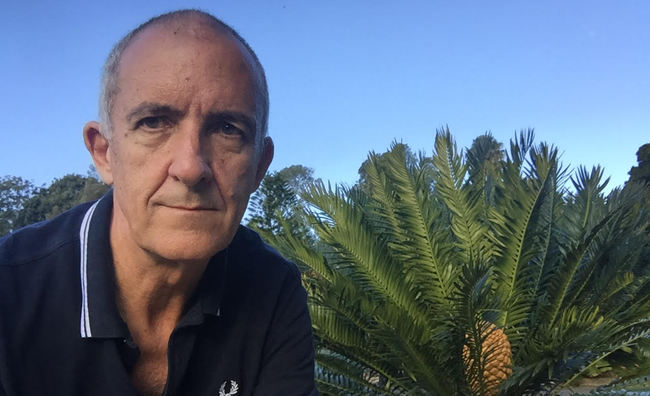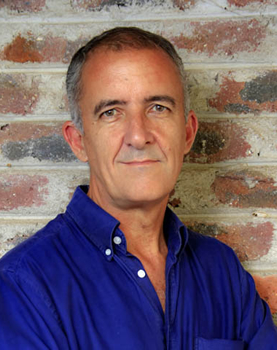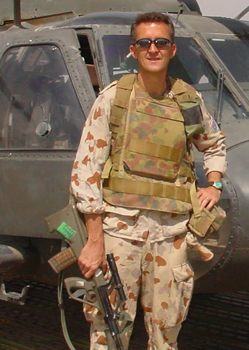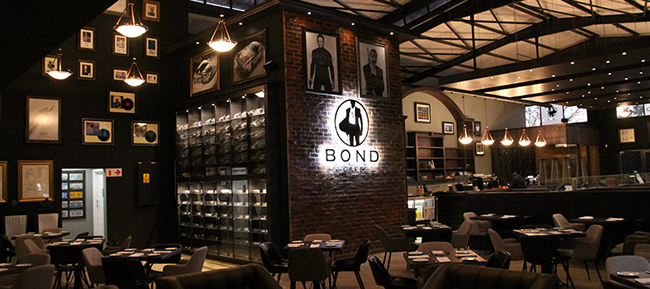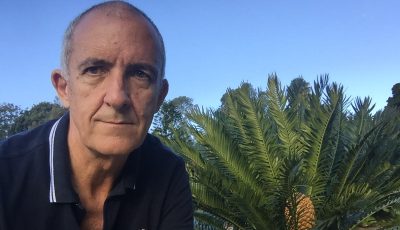

Africa Scene: Tony Park
Exploring the Underground Crime World of Plant Smuggling
Although an Australian, Tony Park is the author of 18 bestselling thrillers set in Africa.
A “once-in-a-lifetime” safari holiday to southern Africa in 1995 turned out to be anything but for Tony, who found in Africa the inspiration he needed to follow his dream, quitting his job in public relations and becoming a full-time writer. Tony and his wife, Nicola, now live half the year—viruses permitting—in a game reserve in South Africa.
His books look at the often bloody fight to save endangered wildlife, and also draw on Tony’s 34 years’ experience in the Australian Army Reserve, including a tour of duty in Afghanistan. Australia’s Sydney Morning Herald calls him one of that country’s “best and most consistent thriller writers,” and The Times of London has described him as Wilbur Smith’s spiritual heir.
His latest book, Last Survivor, an edge-of-your-seat action thriller, went straight to number 1 in South Africa for fiction.
As with others of Tony’s novels, the story follows several different characters involved in the story in different ways. We first meet freelance CIA agent Sonja Kurtz rescuing a senator’s daughter in Mali, but along the way she finds a link to incredibly valuable cycads. Meanwhile, a group of seniors in Pretoria who like firearms and cycads are puzzling about a specimen they had in safe keeping that’s gone missing. They suspect one of their members, Joanne Flack, who has vanished without a trace. Joanne has her own agenda, and everyone would like to know what that is. One thing is for sure—it involves cycads, and it’s dropped her in bad trouble. Meanwhile, another of the group, Thandi Ngwenya, has to follow the clues and deduce what’s really happening.
Park shares insight into what inspired this novel, the importance of character development, and much more in this interview for The Big Thrill’s Africa Scene column.
I had no idea that certain species of African cycads were so valuable and so sought after by collectors (and smugglers). What brought them to your attention, and how did you learn so much about them?
I have a friend in southern Africa who is a fanatical collector of cycads. I had vaguely noticed that she had many similar looking plants, though I couldn’t have told the difference between a cycad and a cactus.
She had to move properties and took her collection with her, uprooting them all and transplanting them.
“Why?” I asked.
“Because they’re worth a fortune!”
She went on to tell me about the thriving illegal market in cycads and how individual rare plants were worth hundreds of thousands of dollars to crooked collectors. She also told me about a multinational undercover sting operation mounted by the US Fish and Wildlife Service some years ago. When I heard that, I thought “game-on!”
Last Survivor is driven by three powerful female characters—Sonya Kurtz, Joanne Flack, and Thandi Ngwenya.
Sonja Kurtz might be described as a female version of Jack Reacher, except that she’s in active service—very active in her case. She powers the thriller, never really relaxing, always ready for the combat situations that seek her out. However, she has an on-again, off-again relationship with a game lodge manager. How did you conceive her?
This is the fourth novel I’ve written featuring Sonja. I was planning, back around 2009, to write a novel about mercenaries. The easiest (and laziest) thing to do would have been to cast a Bruce Willis-type character as my lead soldier of fortune. I was actually travelling with my publicist at the time and mentioned this to her when she asked what I was going to write next.
I told her and was about to say “but I was thinking of making the lead a woman” when she said, “Make it a woman.”
I served with some amazing women in the military in my time, and these days, with women serving in more and more frontline roles in different military forces, her experiences are, if anything, becoming even more “real” (though she still pushes the envelope).
She’s hard as nails and decisive and kick-ass, but her private life is a mess. I hope that makes her “real” as well.
Thandi Ngwenya is the detective of the story. It’s up to her to deduce what’s really going on and to make sure that all the pieces fit. Was that the role you designed for her?
Thandi had a bit part in one of my earlier novels, African Dawn, as a young firebrand revolutionary in Zimbabwe’s war of independence in the 1970s. I liked her back then and wanted to bring her back.
As I never have a plot or clue where I am going when I start a new book, I didn’t know exactly what role Thandi would have in the story. I love it when my characters can take over the running of a story, and Thandi is one of the best examples I can think of that in action. It probably helped that I knew her as a smart, capable woman overcoming adversity in a previous story.
Joanne Flack is no slouch either—she bests a jihadist assassin in London. She has a complicated background starting with smuggling her own cycads out of Zimbabwe to South Africa. But now she’s broke and alone in Zimbabwe, and trying to dodge people who are after her as well as an outrageously valuable cycad. How does she complete the triad?
In many ways, Joanne is emblematic of many strong people I’ve met in my travels in Africa over the years. In some respects she is the most “ordinary” of the trio, but like so many people I’ve met, life in Africa has thrown some incredible curveballs at her.
For so many people in the countries I write about, just living day to day requires incredible reserves of fortitude, courage, and resilience. That’s Joanne.
As the good guys and the bad guys try to get the better of each other, a lot of details about weapons, maneuvers, and vehicles help to set the action in context. Is this based on your own experiences in the Australian Army, or do you need to do a lot of new research for each book?
There are two good adages in writing—”write about what you know,” and “a little bit of knowledge is a dangerous thing.”
I do think that my military background gives me just that—a small dose of background on which to build—but I am no firearms expert, and I know from bitter experience that there are millions of firearms experts out there. If you get the tiniest thing wrong about a gun or bullet, someone will be on to it immediately.
So while I use my experience as a basis, I have a couple of actual firearms experts who check what I’ve written. That’s one of the best things a writer can do—enlist a range of people who know about different things to check their work.
The Pretoria Cycad and Firearms Appreciation Society is an unlikely organization—a group of seniors with a passion for shooting, cycads, and hanging out at the famous Bond Café in Pretoria. But it hosts some interesting characters. What role did you conceive for the group in the story? Are they there to show that ordinary people with the right training and skills can also carry the day?
Absolutely re: the last point.
I will be honest here about including a group of characters in a story. I support a number of African-based charities, and one of the most effective fundraising tools I have come across is auctioning names of characters off at charity auctions. I found myself with an oversupply of names to use in this book, so decided to create a “society.”
That was the original purpose of the group, but once I started writing I had a wonderful time coming up with the different personalities for this heavily-armed group of oldies.
On a more serious note, so many people in Africa who are my age (56) or older have had experience in the military or lived through wars. Many of my friends have lived through terrible times, and their experience is something that has shaped them in some ways. There’s a grain of truth in all of these fun cats.
Most of your thrillers are standalone, set mainly in Africa, though some, such as the Sonja Kurtz series, are linked. Which do you prefer?
As with reading, I like both—standalones and series.
Sometimes it’s good to catch up with old friends, and I know enough about characters such as Sonja and Thandi to give me a head start.
I enjoyed writing the Pretoria Cycad and Firearms Appreciation crew so much that I feel I will have to bring them back sometime.
What I like about a standalone, however, is that wonderful, if sometimes scary, feeling of confronting a blank canvas.
Can you tell us what your next book is about?
It’s modern mystery, based in the time of COVID-19 (I was in lockdown for a large part of the writing time) which looks at the power of traditional medicine and beliefs in African culture. It sees the return of an old “friend” of mine, Detective Sannie van Rensburg of the South African Police Service.
- Out of Africa: Annamaria Alfieri by Michael Sears - November 19, 2024
- Africa Scene: Abi Daré by Michael Sears - October 4, 2024
- International Thrills: Fiona Snyckers - April 25, 2024


